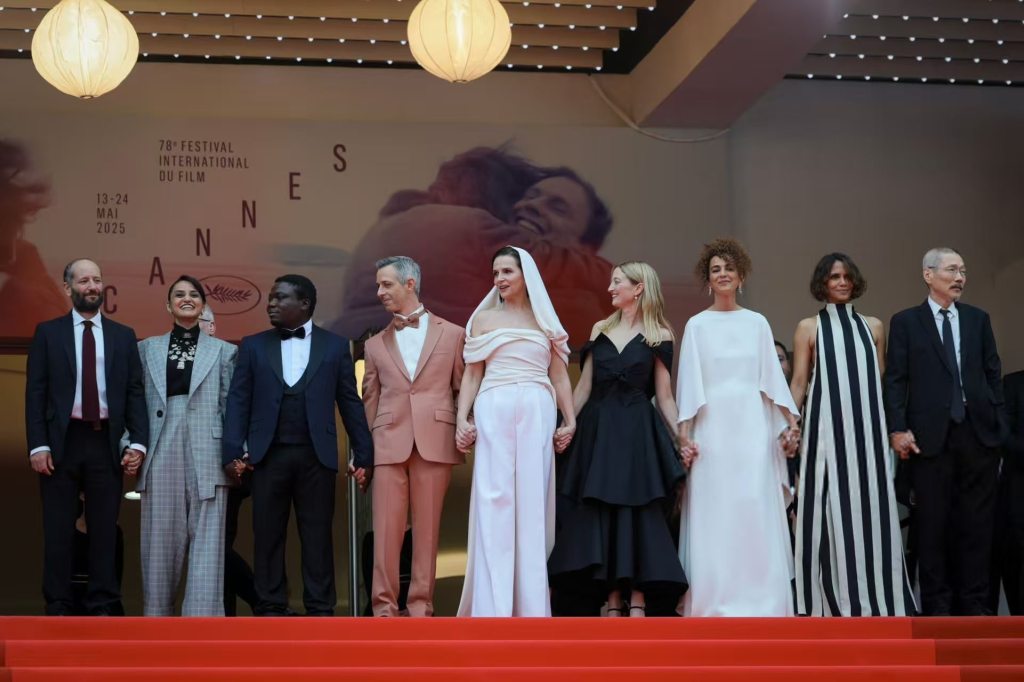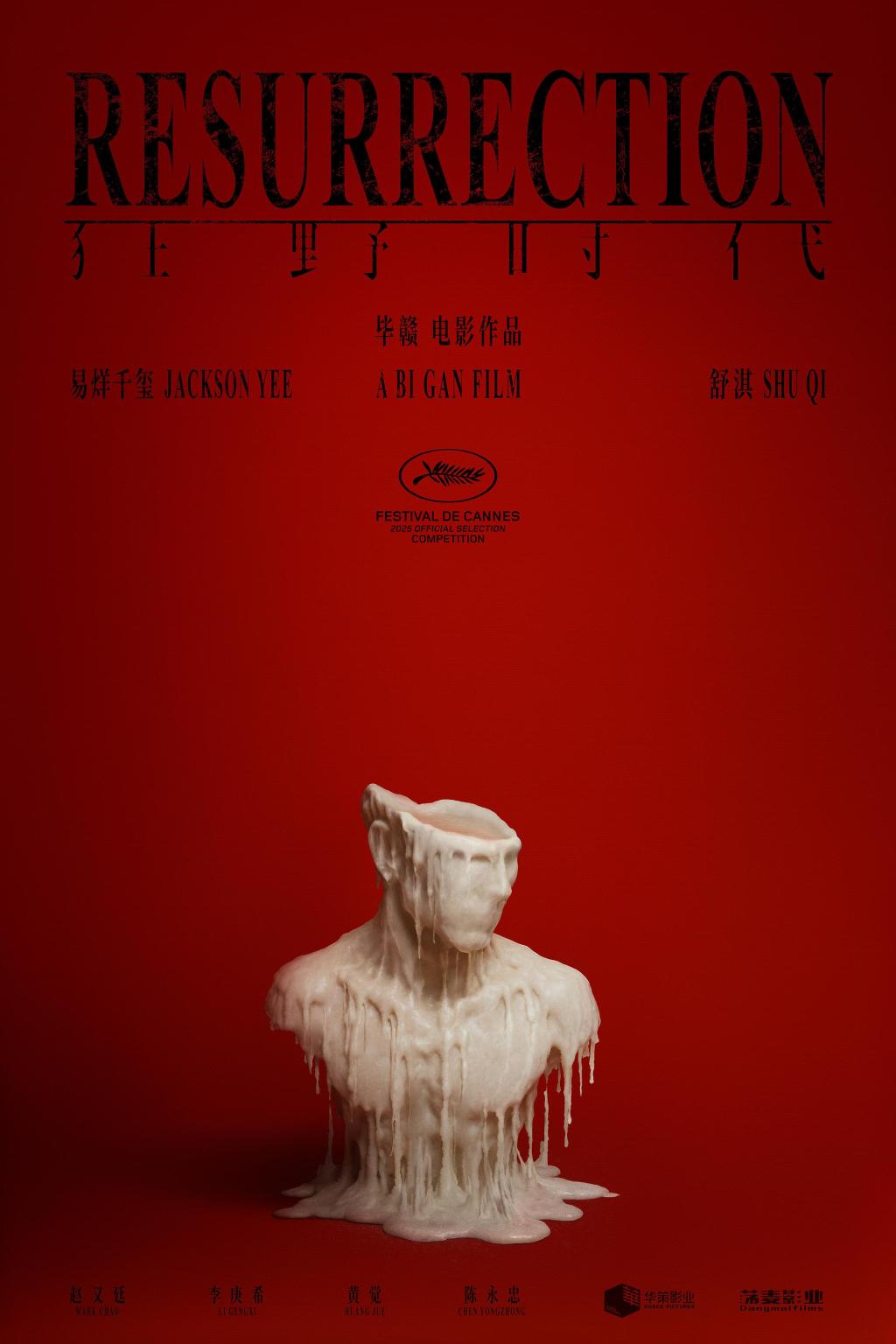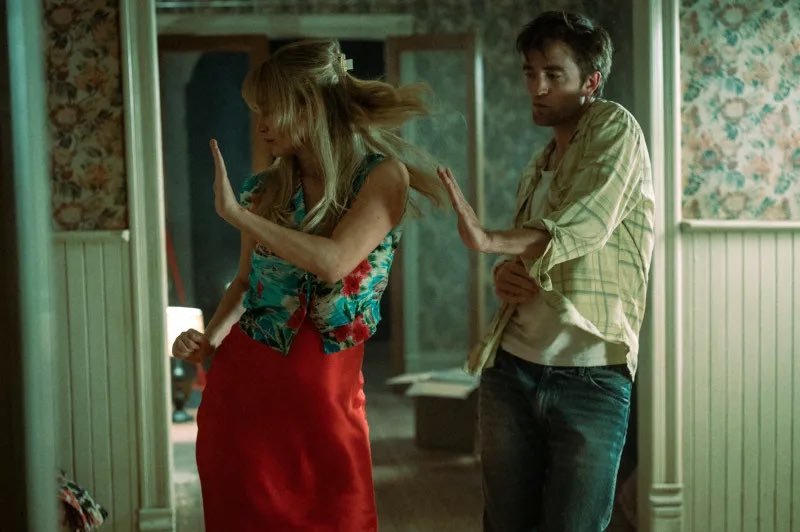
On the evening of May 13th local time, the 78th Cannes Film Festival opened grandly on the Cote d'Azur. Although the Cannes Film Festival previously announced new rules on red carpet dress, this did not affect the guests' careful dressing. Famous actors and models including Bella Hadid, Julia Garner, Heidi Klum, and the main competition unit jury led by the famous French filmmaker Juliette Binoche all appeared in their best attire. As for domestic actors, invited by the film festival's sponsoring brands, Liu Xiaoqing, Gong Jun, Dai Yanni, Zhao Yingzi, and the voice actors of the "Nezha" series, Han Mo and Lv Yanting, also appeared on the red carpet.

The main competition jury, led by famous French filmmaker Juliette Binoche (center), all appeared in their best attire.
Robert De Niro receives Lifetime Achievement Award
The opening ceremony was hosted by French actor Laurent Lafitte, and director Quentin Tarantino took the stage to kick off this year's film festival. The climax of the entire ceremony was when 81-year-old Hollywood famous actor Robert De Niro took the stage and received the Palme d'Or for Lifetime Achievement from his junior Leonardo Dicaprio, and immediately received a standing ovation from the audience.

Robert De Niro receives Palme d'Or for lifetime achievement from Leonardo Dicaprio
De Niro and DiCaprio first collaborated on the 1993 film This Boy's Life, and three decades later, they teamed up again for Martin Scorsese's Killers of the Flower Moon, which premiered at the 2023 Cannes Film Festival.
De Niro himself has a long history with the Cannes Film Festival. Taxi Driver, a film he co-starred with Martin Scorsese, won the 1976 Palme d'Or, and his starring works such as Once Upon a Time in America were also screened at the Cannes Film Festival. He also served as the chairman of the Cannes jury in 2011, when the Palme d'Or went to Terrence Malick's The Tree of Life.
De Niro released a statement after Cannes announced that he had won this year's honor: "I have a deep affection for the Cannes Film Festival... Especially now, when there is so much in the world that is pulling us apart, and the Cannes Film Festival brings us together, storytellers, filmmakers, fans and friends. It feels like coming home."

Cannes opening ceremony
Last night, De Niro, who had strongly criticized the US president during Trump's first term, once again expressed his dissatisfaction with the US president in his acceptance speech. De Niro also directly described the US president as "philistine", criticizing Trump's appointment of himself as the head of the Kennedy Center, an American cultural institution, and his practice of cutting various grants in the fields of art, humanities and education. Of course, the issue of film tariffs is also something he will inevitably talk about. "Creativity cannot be priced, but obviously you can impose tariffs on it," he said sarcastically, "of course this is unacceptable to us. All these attacks are unacceptable to us. This is not just a problem in the United States, but a problem for the whole world. This is like a movie, we can't sit quietly and watch. We must act, and act now. Not with violence, but with great passion and determination. Now is the time, everyone who cares about freedom should organize and protest. Of course, vote at the election. Tonight, and in the next 11 days, we will show our strength and determination by praising art in this glorious film festival. Freedom, equality, fraternity."
Next, Robert De Niro will participate in a master class held at the Debussy Theater in the Cannes Film Palace. What he will say about Trump at that time will attract much attention from the outside world.
After the opening ceremony, the Palais Lumiere screened Partir un jour, the first feature film by French director Emilie Bonin.
No nudity, exposure and big skirts on the red carpet
As the mainstay of the three major European film festivals, the Cannes Film Festival provides a lot of topics that the outside world talks about every year. This year is no exception. The first thing to bear the brunt is what kind of clothes to wear on the red carpet mentioned at the beginning of this article. Just before the opening of this year's film festival, the organizers suddenly released the latest red carpet dress code, which clearly stated that nudity, overly revealing and overly "loose" clothing are not welcome. According to the organizers, "The purpose is not to regulate the dress itself, but for decency considerations, nudity is prohibited on the red carpet and any other area of the film festival. Overly loose clothing is not allowed, especially clothing with long skirts, because this will hinder the normal passage of guests and complicate the seating arrangement in the theater. The film festival welcoming team has the power to prohibit anyone who does not comply with these regulations from walking on the red carpet."

The crew of the opening film "The Day of Departure" on the red carpet in Cannes
The rule about not going topless is actually easy to understand. In 2022, female protesters supporting Ukraine exposed their bodies on the Cannes red carpet. On similar occasions, such as the Grammy Awards earlier this year, Bianca Censori, the wife of the famous singer Kanye West, appeared on the red carpet in a transparent dress, causing an uproar in public opinion. The above two categories obviously do not meet the new red carpet rules of Cannes.
The latter rule that prohibits wearing "loose" clothing is confusing to the public. This type of clothing refers to the large puffy skirts or dresses with super long skirts and backs that many female guests like to wear. Wearing such clothing may pose a safety hazard to yourself and others when climbing the steps of the Film Palace. It may also be quite inconvenient to watch a movie in the theater wearing such clothing, so Cannes has the above regulations.
However, some netizens said that it would be very problematic to implement such a general rule, and it might even be suspected of gender discrimination. After all, the red carpet dress code of the Cannes Film Festival has caused controversy from time to time in the past, such as requiring guests to wear "elegant" shoes. But in practice, "elegance" has long been regarded as a synonym for high heels, and women have been turned away by the security guards of the Film Palace for wearing flat shoes. In 2015, before the screening of the movie "Carol" starring Cate Blanchett, many female audiences were turned away for not wearing high heels, which caused huge controversy and attracted the support of actresses such as Emily Blunt, which gradually made Cannes let go of its obsession with high heels. But three years ago, a male producer was stopped outside by the security guards for not wearing "elegant" men's leather shoes because he wore indigenous flat shoes with his own ethnic characteristics.

Liu Xiaoqing walks on the Cannes red carpet with a string of panda dolls
In addition, "loose" can have other definitions. In recent years, stars including Elle Fanning, Bella Hadid, Kendall Jenner, etc. have appeared in Cannes wearing tulle dresses with wide openings in the middle. Is it that this year, such clothes are no longer allowed, or is it all up to the security team to decide who to wear? It is really full of uncertainty and opacity.
At present, the most stringent dress code in Cannes is still the various film premieres held every evening. Guests will receive a text reminder in advance, requiring them to wear evening gowns and men must wear dark ties or bow ties. Officials also recommend that guests can choose tuxedos, long skirts or little black skirts, cocktail skirts, dark trousers, black pants with dress tops, etc., and wear elegant leather shoes or heeled or non-heeled sandals. In addition, handbags, backpacks or large bags are prohibited.
However, at yesterday's opening ceremony red carpet, some guests actually "defied the rules." For example, the hem of supermodel and host Heidi Klum's pink long dress and Chinese actress Wan Qianhui's white puffy skirt both took up a lot of space.
Filmmakers force Cannes to take stance on Israeli-Palestinian conflict
Compared with trivial dress regulations, the outside world is probably more concerned about the complicated relationship between film art and real politics. On the evening of May 12, local time, the French newspaper Liberation published a joint open letter from nearly 400 global filmmakers, titled "In Cannes, the terror in Gaza must not be silenced." The signatories include big names such as Susan Sarandon, David Cronenberg, and Javier Bardem, condemning the official silence of the Cannes Film Festival on the Gaza issue.
The issue between Israel and Palestine has a long history, and the latest round of conflict has lasted for more than a year. It was already evident at the last Cannes Film Festival. In this regard, Cannes's president Thierry Frémaux has always emphasized the artistic nature of the film festival, hoping that the outside world will focus on the films themselves, and always tries every means to avoid talking about politics. From this perspective, the above open letter is equivalent to forcing Cannes to make a statement.

Palestinian artist and photojournalist Fatima Hassouna was killed in an Israeli airstrike on Gaza.
The letter begins with "Dedicated to Fatima", commemorating the Palestinian artist and photojournalist Fatima Hassouna. On April 16 this year, Israeli missiles struck Gaza, killing Hassouna and ten of her family members at home. She was only 25 years old. On April 15, the documentary "Put Your Soul on Your Hand and Walk", which she filmed and interviewed, was announced to be shortlisted for Cannes and will be screened in the unofficial parallel unit "Association du Cinéma Indépendant pour sa Diffusion". Beforehand, Fatima Hassouna had told the Iranian female director of the film, Sepaid Fassey, that she would find a way to come to Cannes to attend the premiere of the film on May 15.

The documentary "Carrying the Soul in the Palm of Your Hand" will be screened during this year's Cannes Film Festival.
The open letter from filmmakers around the world strongly condemned the Israeli army's practice of targeting civilians, and also mentioned the precedent that the Academy of Motion Picture Arts and Sciences, the organizer of the Oscars, was criticized for not giving timely public support to Palestinian filmmaker Hamdan Baral. The documentary "My Only Home" he co-produced won the Oscar for Best Documentary Feature this year, but after Baral was detained by Israeli military police, the Academy failed to express support in the first place, and later publicly apologized for it.
On the other hand, since the murder of Fatima Hassouna, apart from the Independent Film Producers Association expressing condolences immediately, the Cannes official only mentioned that they were "extremely shocked and deeply mourned by this tragedy", which was considered to lack critical strength. Although this parallel unit, which was born in 1993, is not an official event of the Cannes Film Festival, like the "Directors' Fortnight", it has been carried out simultaneously with the film festival for more than 20 years and has long been regarded by the outside world as a part of the Cannes Film Festival.
"As artists and cultural workers, we cannot remain silent as genocide occurs in Gaza and as our art community suffers a devastating blow. If we fail to learn from history, if we fail to make responsible films, if we fail to protect oppressed voices, then what is the meaning of our profession? Why continue to remain silent?" reads an open letter signed by directors Jonathan Glazer, Yorgos Lanthimos, Nadav Lapid, Mike Leigh, Kleber Mendoza Jr., Laura Poitras, Ruben Östlund and actors Mark Ruffalo and Viggo Mortensen.
Trump's new tariff policy becomes the focus of discussion
In addition, the policy recently proposed by US President Trump to impose a 100% tariff on films shot and produced outside the United States is destined to become a hot topic at this year's Cannes Film Festival. Just one day before the unveiling, more than 100 film and television organizations from all over the world jointly appealed to EU institutions and governments, hoping that they would give greater support to independent film production in various countries. The appeal, entitled "Our Stories, Our Voices: A Global Declaration on Artistic Freedom, Cultural Diversity and Cultural Sovereignty", requires governments to "stand firm and maintain a system that supports independent film creation so that film culture can continue to flourish." Signatories include the European Producers Club, the South African Independent Directors Association, the Canadian Francophone Producers Union, etc.

Tom Cruise previously refused to answer questions about Trump's new tariff policy.
Earlier, during the promotional event for Mission: Impossible 8: Reckoning on May 8, a reporter tried to ask about tariffs, but Tom Cruise, the lead actor, rejected the question outright, saying he would only answer "questions about the movie itself." The film will have its world premiere in Cannes on May 14. No matter how Tom Cruise tries to stop it, I believe that facing a film shot all over the world, some media will definitely ask about tariffs.

Wes Anderson's "The Phoenician Project" was filmed at the Babelsberg Film Studios in Potsdam, Germany.
In addition, the film "The Phoenician Project" directed by Wes Anderson, which will premiere in Cannes later, is produced by Focus Features, but the filming location is the Babelsberg Film and Television Base in Potsdam, Germany. There is also the French film "New Wave" shot by Richard Linklater in the main competition unit, which was shot entirely in Paris. Similar questions will definitely be raised at that time.

Richard Lindlake (left) shot his film New Wave entirely in Paris.
Of course, how Trump's film tariff policy will be implemented in the future is still completely unknown. Talking about related topics in this context is somewhat like "beating a drum with a bamboo tube" and I believe no one can really answer anything substantial. But as long as this matter is still there, or even as long as Trump is still there, this uncertainty will undoubtedly become the sword of Damocles hanging over the heads of global film producers.
In addition to being the world's largest art film festival, the Cannes Film Festival also hosts one of the world's leading film and television trading platforms. The basis of such transactions is trust and confidence. As the buyer, the distributor who pre-purchases the film rights must believe that the producer can complete the film on time and within the budget; as the seller, the producer must believe that the filming subsidies and tax incentives given by local governments will be in place. However, under the shadow of the US film tariffs, both buyers and sellers have added some uncertainties.
In this regard, at the media meeting on May 12, Frémaux said firmly but generally, "Movies always find a way to continue to exist and constantly reinvent themselves." In his opinion, it is too early to talk about tariffs now. "Because look at his statements in the past three months, he always said this at the beginning, and then contradicted himself after a while, so I can't answer questions related to tariffs at this stage." He even assumed that if he had the opportunity to talk directly with Trump, he said he would tell the US President that "foreign films nourish the imagination and culture of the United States" and that the Cannes Film Festival "will not let anyone stop the creativity of movies."

